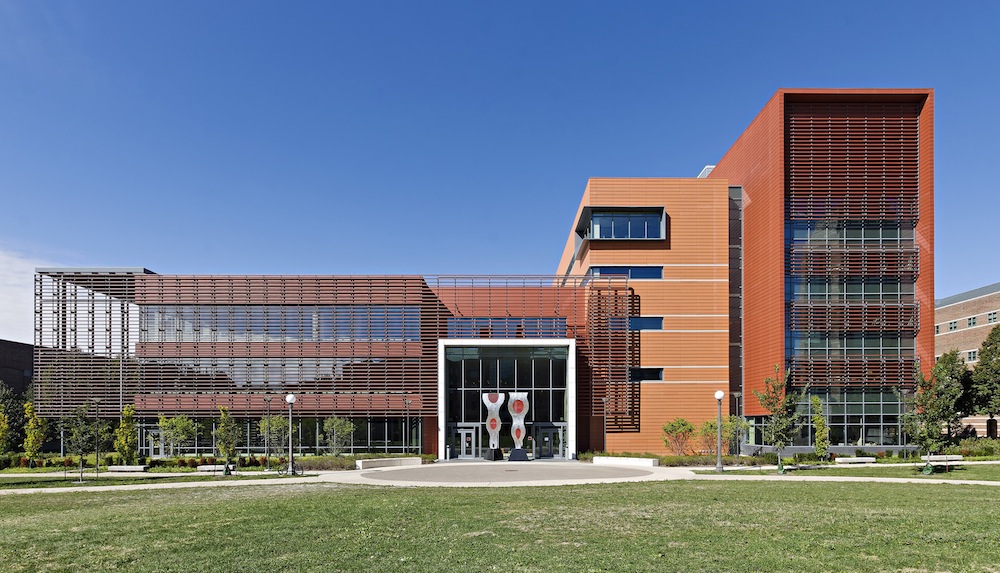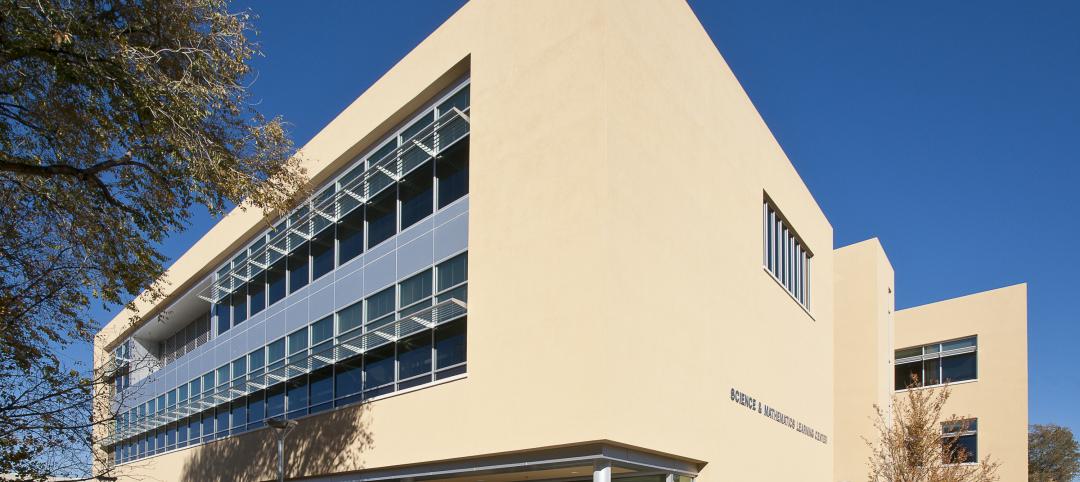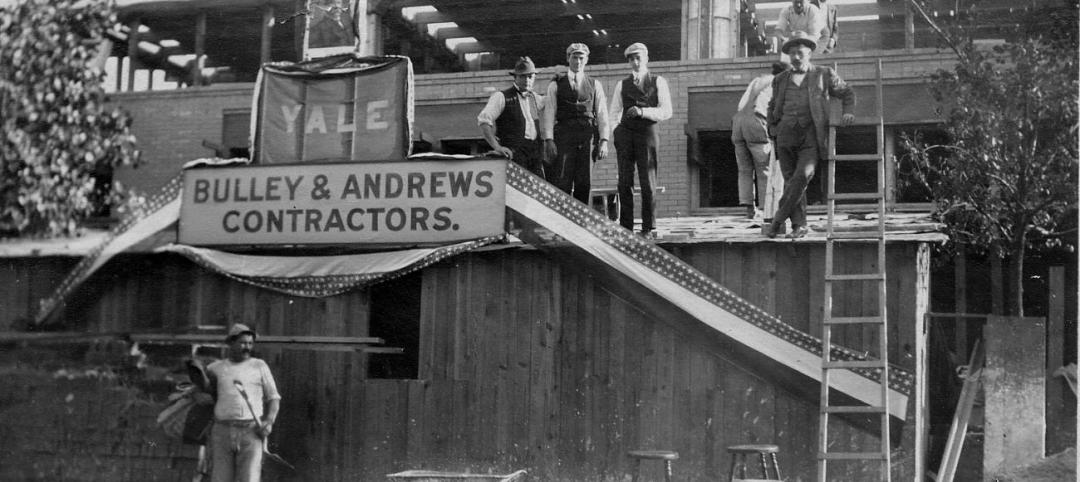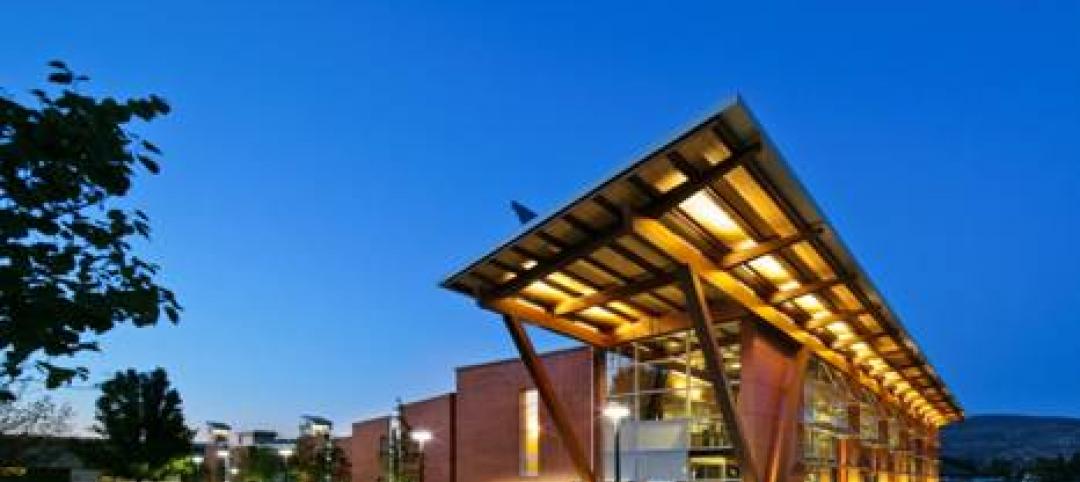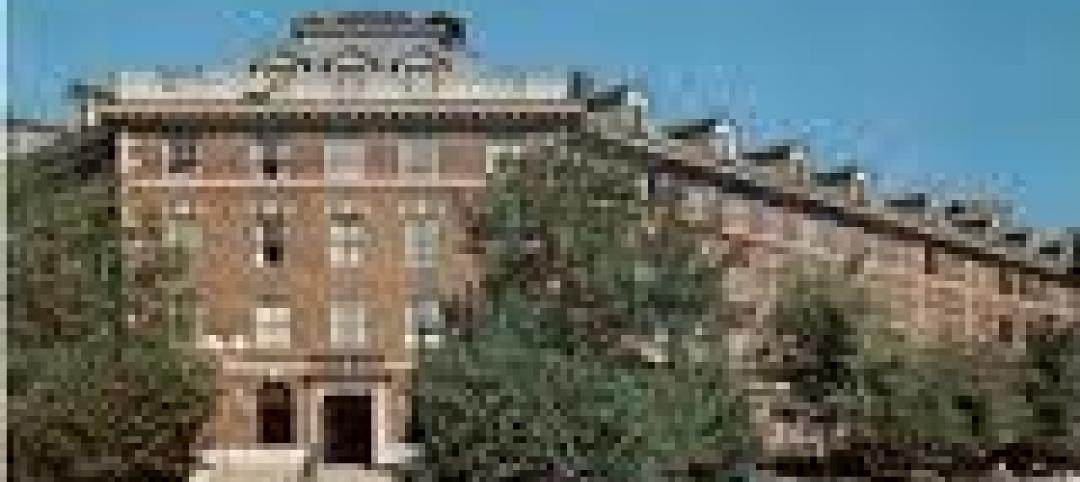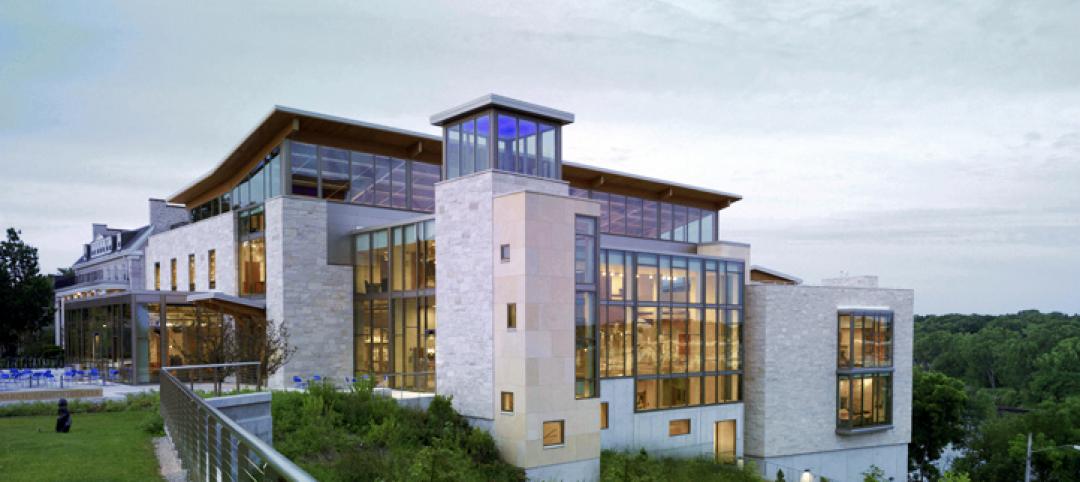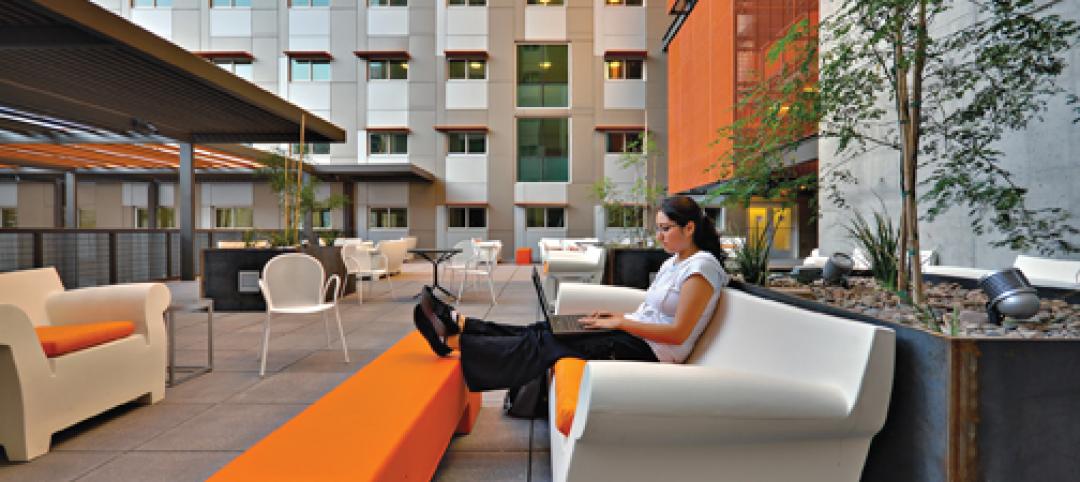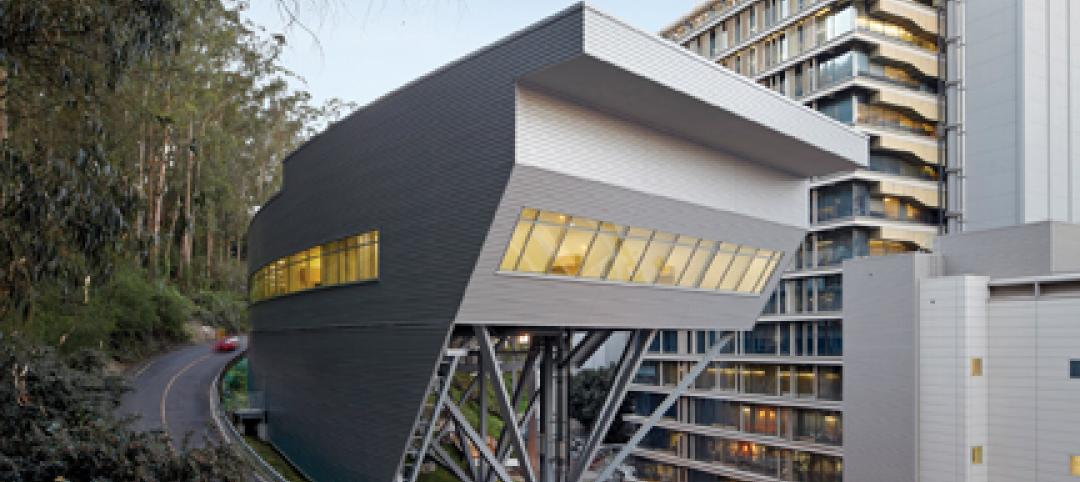The University of Illinois’s new Electrical and Computer Engineering Building has been named R&D Magazine’s 2016 Laboratory of the Year.
SmithGroupJJR designed the $95 million, 230,000-sf research facility. Located on the school’s Urbana campus, the ECE Building contains the Department of Electrical and Computer Engineering (ECE Illinois), which is known for its research in transistors, integrated circuits, LEDs and plasma displays.
The award, in its 50th year, honors new and renovated labs that promote sustainable practices and creativity in the design of modern laboratories.
The designers stressed energy efficiency. The building uses 50% less energy than minimum building energy efficiency standards, and it is targeting a LEED Platinum certification. Some of the sustainable feature include high-performance LED lighting, heat recovery chillers with net metering, and a chilled beam cooling system.
A terra cotta rainscreen system covers 70% of the building envelope, while double paned glass covers the remaining 30. Solar screens and a three-story canopy of angled louvers protect the building’s glazing from solar heat gain.
At nearly double the size of the old Everitt Laboratory, the ECE Building has space for separate labs and classrooms, and a lobby with communal seating.
"Our goal was to deliver a building that represents the stature of this world-renowned department, positions its students and researchers at the forefront of emerging technology, and acts as a catalyst for efficient building energy standards on the ILLINOIS campus,” SmithGroupJJR Project Manager Carolina Lopez, AIA, LEED AP BD+C, said in a statement. “This award is a testament of that unparalleled effort and proof that this facility goes beyond bricks and mortar to represent the department’s mission and values.”
Two Illinois-based firms were also on the Building Team. Williams Brothers Construction was the prime contractor and KJWW Engineering Consultants served as mechanical engineer. Construction was completed in 2014.
Related Stories
| Oct 17, 2011
Clery Act report reveals community colleges lacking integrated mass notification systems
“Detailed Analysis of U.S. College and University Annual Clery Act Reports” study now available.
| Oct 14, 2011
University of New Mexico Science & Math Learning Center attains LEED for Schools Gold
Van H. Gilbert architects enhances sustainability credentials.
| Oct 12, 2011
Bulley & Andrews celebrates 120 years of construction
The family-owned and operated general contractor attributes this significant milestone to the strong foundation built decades ago on honesty, integrity, and service in construction.
| Sep 30, 2011
Design your own floor program
Program allows users to choose from a variety of flooring and line accent colors to create unique floor designs to complement any athletic facility.
| Sep 23, 2011
Okanagan College sets sights on Living Buildings Challenge
The Living Building Challenge requires projects to meet a stringent list of qualifications, including net-zero energy and water consumption, and address critical environmental, social and economic factors.
| Sep 14, 2011
Research shows large gap in safety focus
82% of public, private and 2-year specialized colleges and universities believe they are not very effective at managing safe and secure openings or identities.
| Sep 7, 2011
KSS Architects wins AIA NJ design award
The project was one of three to win the award in the category of Architectural/Non-Residential.
| May 18, 2011
Major Trends in University Residence Halls
They’re not ‘dorms’ anymore. Today’s collegiate housing facilities are lively, state-of-the-art, and green—and a growing sector for Building Teams to explore.
| May 18, 2011
Raphael Viñoly’s serpentine-shaped building snakes up San Francisco hillside
The hillside location for the Ray and Dagmar Dolby Regeneration Medicine building at the University of California, San Francisco, presented a challenge to the Building Team of Raphael Viñoly, SmithGroup, DPR Construction, and Forell/Elsesser Engineers. The 660-foot-long serpentine-shaped building sits on a structural framework 40 to 70 feet off the ground to accommodate the hillside’s steep 60-degree slope.


